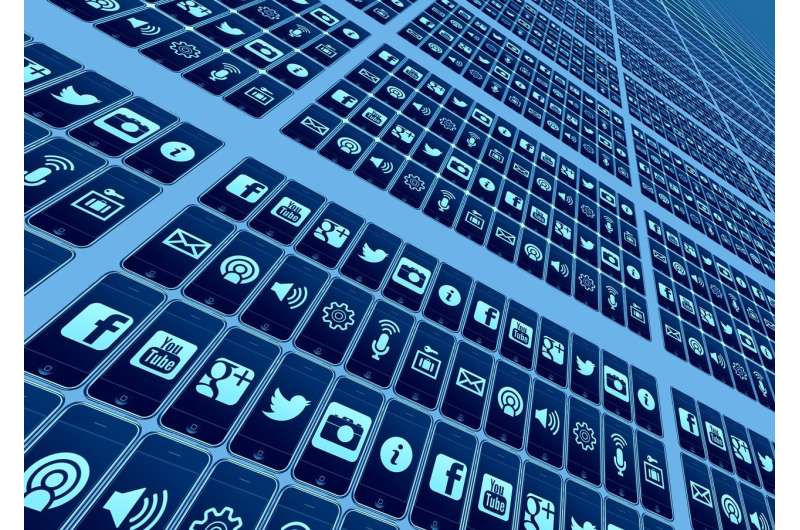February 2, 2019 weblog
Love it and leave it: Social media effects explored by researchers

Social media platforms now cope with a sobered-up user base. Users are aware the platforms can render them lab rats for marketeers. They are also in a sobered-up world, hearing out critics who suggest excessive use is replacing human community with passwords, sign-ins and thumb icons.
Are all these digital connections opening new networking doors and personal growth, or are they mentally restricting users into self-indulgent, walled communities?
It's easy to argue for and against, based on one's own opinions. However, researchers can provide some much needed answers on real activities and impact. A recent such study is getting attention in the press, as it zooms in on Facebook, and shows results that one may not have anticipated.
"The Welfare Effects of Social Media" presents results of an evaluation based on 2,844 Facebook users. What would they say, how would they feel, what would they do, if frozen out of Facebook for a month?
"We measured the willingness-to-accept of 2,844 Facebook users to deactivate their Facebook accounts for four weeks," the authors wrote.
Results in brief: Quitters replaced the time they would have spent on Facebook with TV watching and real-life socializing with their families and friends. They had less factual news knowledge and also less political polarization. After the experiment was done, they showed a reduction in Facebook use.
(Fast Company commented on the quitters who chose to spend less time on Facebook once the study ended. "Even after their accounts were reactivated, those who had a one-month hiatus ended up spending less time on Facebook for several weeks after the experiment ended.")
Nonetheless, the use numbers continue to grow. Facebook, which remains the largest social media company, has 2.3 billion monthly active users worldwide. Even with past data privacy headlines and scrutiny, "Masses of people are not abandoning Facebook, according to the company's fourth quarter earnings, released on Wednesday," said Hamza Shaban, technology reporter for The Washington Post.
Who designed the study and how was it carried out? The researchers were from New York University and Stanford.
Researchers recruited participants, using Facebook ads. "Our participants are relatively young, well-educated," they wrote, and they included "only people who reported
using Facebook more than 15 minutes per day." The 2,844 people filled out questionnaires about such items as daily routines and political leanings.
Hunt Allcott, an economics professor at NYU, and one of the co-authors of the study, told The Washington Post in an interview Thursday: "The most remarkable thing is that our results do not support a strong anti-Facebook narrative, nor do they support a strong pro-Facebook narrative."
"The Welfare Effects of Social Media" is by Hunt Allcott, Luca Braghieri, Sarah Eichmeyer and Matthew Gentzkow.
The study authors saw happiness among Facebook quitters. They found that deactivation increased their "SWB." SWB stands for social well being.
The Washington Post: Deactivating Facebook for just four weeks could alter people's behavior and state of mind, as their temporary quitting of Facebook provoked a small but significant improvement in people's self-reported happiness and satisfaction with their lives.
Nonetheless, the authors wrote in their conclusions: "Our results leave little doubt that Facebook produces large benefits for its users. A majority of people in our sample value four weeks of access at $100 or more, and these valuations could imply annual consumer surplus gains in the hundreds of billions of dollars in the US alone. The 60 minutes our participants spend on Facebook each day is itself suggestive of the substantial value it provides."
Some of the comments from participants: "I thought I would miss seeing everyone's day-to-day activities... I really didn't miss it at all." Cold turkey was not easy for all. "I was shut off from those [online] conversations, or just from being an observer of what people are doing or thinking. . . I didn't like it at first at all, I felt very cut off from people that I like. . . I didn't like it because I spend a lot of time by myself anyway, I'm kind of an introvert, so I use Facebook in a social aspect in a very big way."
How do the study authors assess the value of this research effort? "The trajectory of views on social media with early optimism about great benefits giving way to alarm about possible harms is a familiar one. Innovations from novels to TV to nuclear energy have had similar trajectories."
The authors, in turn, hope their analysis "can help move the discussion from simplistic caricatures to hard evidence, and to provide a sober assessment of the way a new technology affects both individual people and larger social institutions."
More information: The Welfare Effects of Social Media, web.stanford.edu/~gentzkow/research/facebook.pdf
© 2019 Science X Network




















